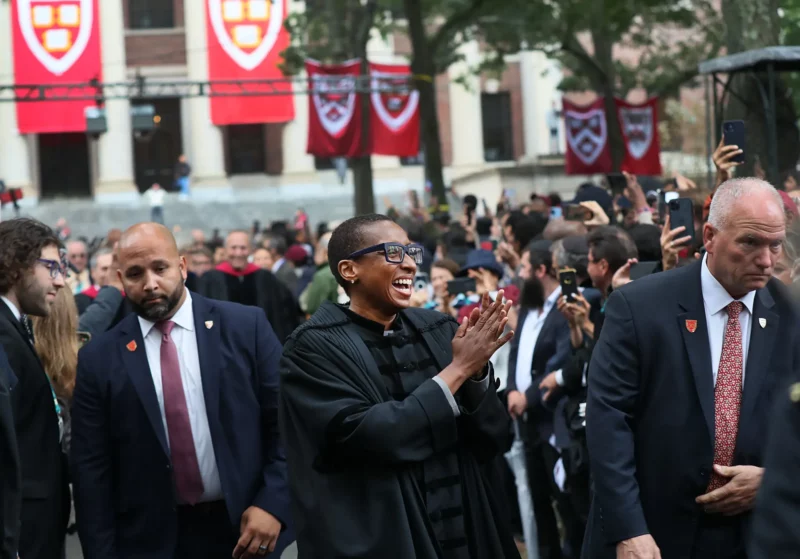For Harvard’s First Black President, Race Became the Unavoidable Issue
Share
Explore Our Galleries
Breaking News!
Today's news and culture by Black and other reporters in the Black and mainstream media.
Ways to Support ABHM?
Kurt Streeter, The New York Times
Claudine Gay celebrated her history making appointment. But after she resigned, she spoke very differently about her experience.

In her late September inauguration, Claudine Gay looked out at a packed audience and spoke of her pride in making history as the first Black president of Harvard in its 387 years.
“I stand before you on this stage, in this distinguished company and magnificent theater,” she intoned before continuing, “with the weight and honor of being a ‘first’ — able to say, ‘I am Claudine Gay, the president of Harvard University.’”
After her resignation on Tuesday, she talked about race very differently. “Those who had relentlessly campaigned to oust me since the fall often trafficked in lies and ad hominem insults, not reasoned argument,” she wrote in a Wednesday opinion piece in The New York Times. “They recycled tired racial stereotypes about Black talent and temperament. They pushed a false narrative of indifference and incompetence.”
The painful and startling story of Dr. Gay’s brief presidency is igniting discussions of plagiarism, fairness, antisemitism and leadership. But also at its core is the unavoidable American question of race, and what role it plays in who gets ahead and how they are judged.
Her appointment came as the country was debating how to balance racial diversity and academic merit, frame history lessons about slavery and racism, and address the needs of Black and poor students.
[…]
With its $50 billion endowment, Harvard might seem like it could soar over such battles. But the school’s elite status and the symbolism that it carries have dragged Harvard, and its leadership, straight into the fray.
Read more about how Gay’s race affected the decisions made surrounding her presidency in the original article.
Learn how we can prevent race politics from affecting Black Americans like Gay again in this virtual exhibit.
Find more Breaking News here.









Comments Are Welcome
Note: We moderate submissions in order to create a space for meaningful dialogue, a space where museum visitors – adults and youth –– can exchange informed, thoughtful, and relevant comments that add value to our exhibits.
Racial slurs, personal attacks, obscenity, profanity, and SHOUTING do not meet the above standard. Such comments are posted in the exhibit Hateful Speech. Commercial promotions, impersonations, and incoherent comments likewise fail to meet our goals, so will not be posted. Submissions longer than 120 words will be shortened.
See our full Comments Policy here.